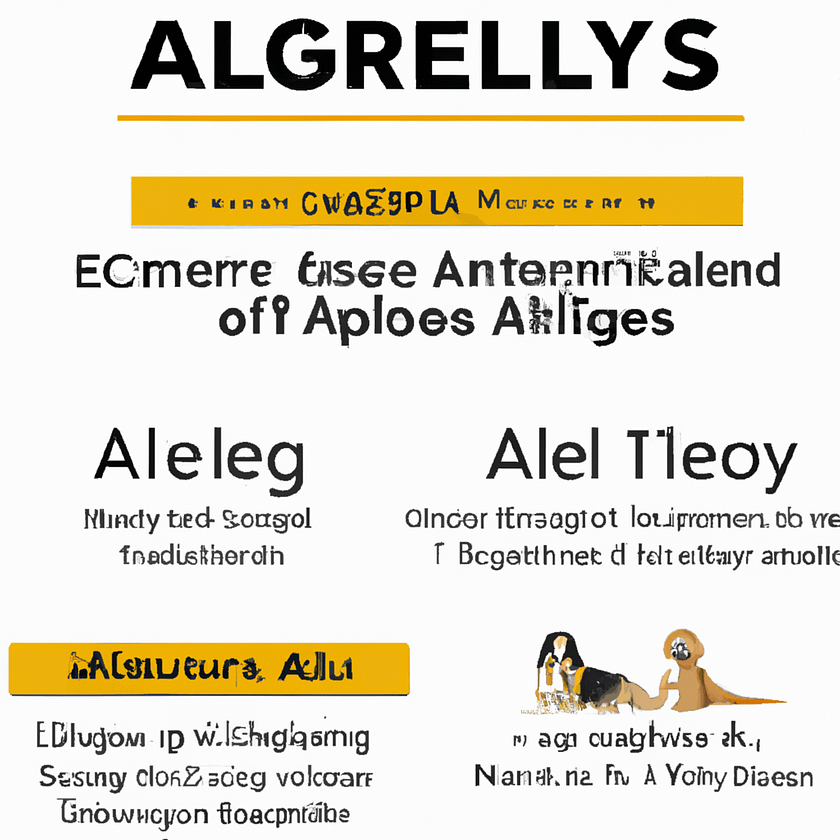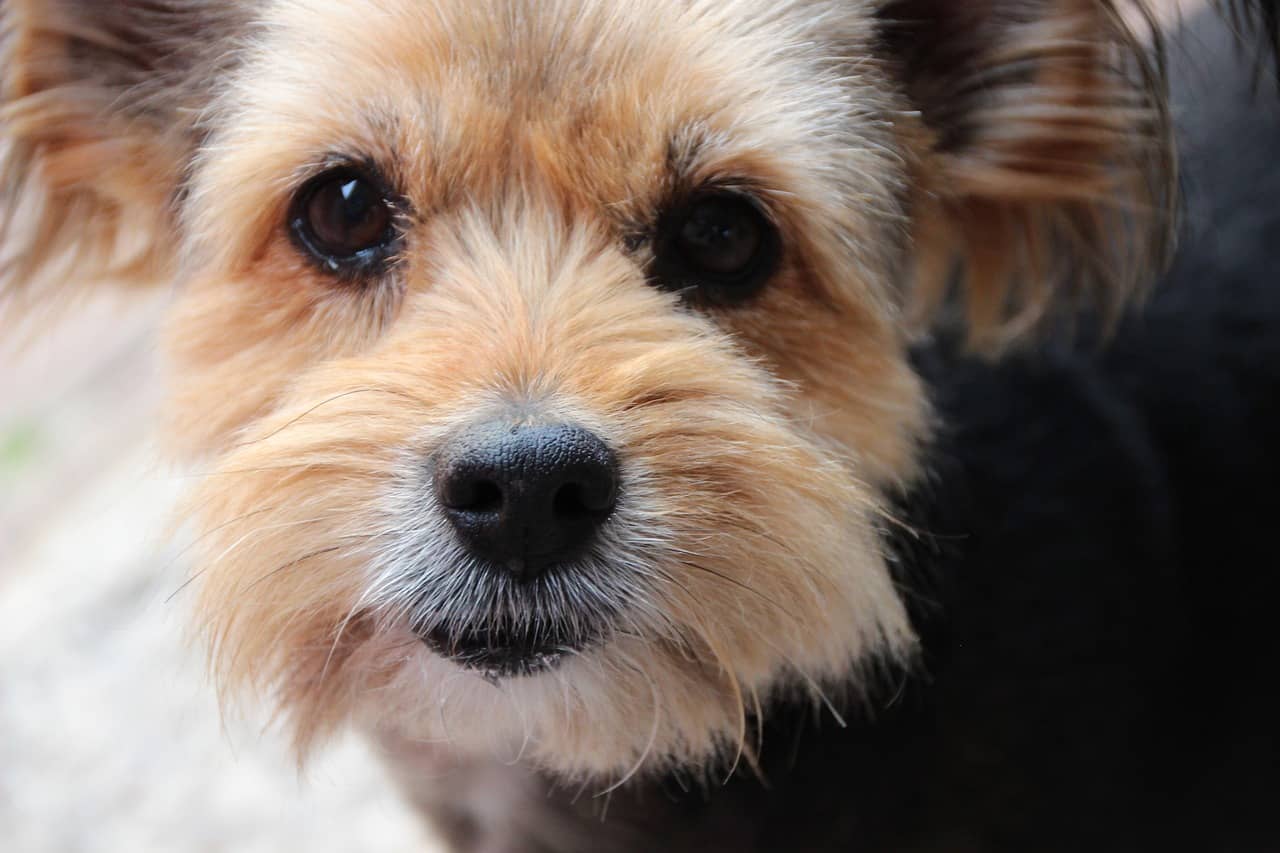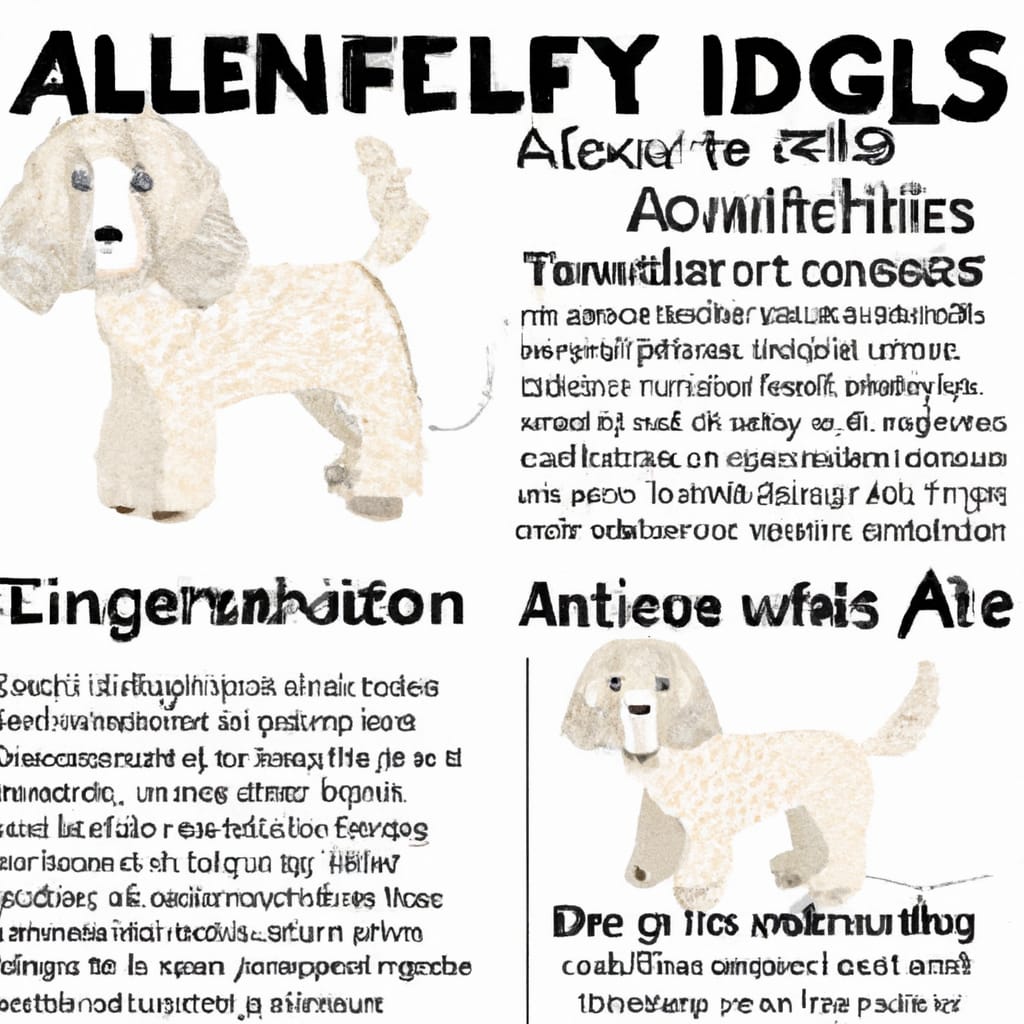Best Dog Breeds For Allergies: Hypoallergenic Dogs
Are you a dog lover who also suffers from allergies? Don’t worry, there’s good news for you. If you thought owning a dog was impossible due to your allergies, think again. In this article, we will explore the best dog breeds for allergies and discover the wonders of hypoallergenic dogs. These special breeds can bring joy and companionship to your life without triggering your allergies. So, get ready to meet some furry friends who are sure to steal your heart while keeping your sneezing at bay.

What are hypoallergenic dogs?
Hypoallergenic dogs are breeds that are known to be less likely to cause allergies in individuals who are sensitive or allergic to pet dander. While no dog breed is completely hypoallergenic, these breeds are known to produce fewer allergens compared to others. The allergens are usually found in a dog’s dander, saliva, and urine, and they can trigger allergic reactions such as sneezing, itching, and respiratory problems in some people. However, with hypoallergenic dogs, the risk of triggering allergies is significantly reduced, making them a great choice for individuals who still want to enjoy the companionship of a dog without suffering from severe allergy symptoms.
Understanding hypoallergenic dogs
Hypoallergenic dogs have hair instead of fur, which means they shed less and produce fewer allergens. This is because the primary source of allergens in dogs is their fur, which can easily trap dander and other allergenic particles. Dogs with hair, on the other hand, have a much lower propensity for shedding and produce fewer allergens, making them a suitable option for allergy sufferers.
It is important to note that hypoallergenic does not mean completely allergen-free. While these dogs may be less likely to trigger allergies, individual reactions can vary. Therefore, if you have severe allergies, it is always best to spend time with a specific dog breed before bringing one into your home to ensure it does not aggravate your allergic reactions.
Benefits of owning a hypoallergenic dog
Owning a hypoallergenic dog can have several advantages, especially for individuals with allergies. Here are a few benefits of having a hypoallergenic dog:
-
Reduced Allergic Reactions: The primary benefit of owning a hypoallergenic dog is the reduced risk of triggering allergies. With less shedding and lower levels of allergenic proteins in their dander, hypoallergenic dogs can significantly minimize the allergic reactions that individuals may experience.
-
Clean and Low-Maintenance: Hypoallergenic dogs often require less grooming compared to breeds with fur. This means less cleaning up after shedding and a generally cleaner living environment. Additionally, their hair is less likely to trap allergens, making it easier to keep your home allergy-free.
-
Increased Compatibility: If you or someone in your household has allergies but still longs for the companionship of a dog, owning a hypoallergenic breed can make this dream a reality. These dogs allow you to experience the joy and love of having a furry friend without compromising your health and well-being.
-
Suitable for Apartment Living: Many hypoallergenic breeds are well-suited for apartment or small living spaces. Their smaller size and lower shedding tendencies make them ideal for those who do not have a lot of space but still want a dog as a pet.
-
Active Lifestyle: While hypoallergenic breeds may not require as much exercise as some larger breeds, they still enjoy physical activity and mental stimulation. Regular exercise can help keep these dogs happy and healthy, which is beneficial for both their physical and mental well-being.
Factors to consider before getting a hypoallergenic dog
While owning a hypoallergenic dog can be a great choice for individuals with allergies, there are several factors that you should consider before bringing one into your home.
Allergy severity
The severity of your allergies should be one of the key considerations before getting a hypoallergenic dog. While these breeds produce fewer allergens, it is essential to determine if being around dogs, regardless of their hypoallergenic characteristics, triggers any allergic reactions. If you have severe allergies, consult with an allergist or spend time with hypoallergenic dogs to ensure you can tolerate their presence.
Time commitment
Dogs, regardless of their hypoallergenic status, require time and care. Consider your schedule and the amount of time you can dedicate to your dog’s needs. From feeding and grooming to exercise and training, owning a dog is a long-term commitment that requires your time and attention.
Exercise needs
All dogs, including hypoallergenic breeds, have exercise requirements. While hypoallergenic dogs may not have the same high energy levels as some larger breeds, they still need regular exercise to stay healthy and happy. Consider your lifestyle and ensure you can provide the necessary exercise for your chosen hypoallergenic breed.
Grooming requirements
Hypoallergenic dogs often have specific grooming needs. Their hair needs to be regularly brushed to prevent matting and tangling, and they may require professional grooming to maintain their coat’s condition. Additionally, their ears and eyes may need extra attention to prevent infections. Consider the grooming needs of the hypoallergenic breed you are interested in and ensure you can meet those requirements.
Size and space requirements
The size of your living space should be taken into account when choosing a hypoallergenic dog. While many hypoallergenic breeds are small in size and adaptable to apartment living, some may still require more space to move around comfortably. Consider the size of your home and make sure it is suitable for the hypoallergenic breed you are considering.
Compatibility with children and other pets
If you have children or other pets, it is crucial to choose a hypoallergenic breed that is compatible with them. Some hypoallergenic dogs may have a better disposition around children, while others may not be as tolerant. Take the time to research and ensure the hypoallergenic breed you select will integrate well into your family dynamics.

Top hypoallergenic dog breeds
There are several hypoallergenic dog breeds to choose from, each with its own unique characteristics and suitability for owners with allergies. The following are some of the top hypoallergenic dog breeds that you may want to consider:
Airedale Terrier
The Airedale Terrier is a medium-sized breed known for its intelligence and friendly disposition. They have a wiry and tight coat that minimizes shedding, making them hypoallergenic. Airedale Terriers are energetic dogs that require regular exercise and mental stimulation. They are also known to be good with children and can adapt well to different living environments.
Bichon Frise
The Bichon Frise is a small, cheerful, and playful breed that is often recommended for allergy sufferers. Their curly, dense coat minimizes shedding and dander, reducing the risk of triggering allergies. Bichon Frises are known for their affectionate nature and get along well with children and other pets. They require moderate exercise and regular grooming to keep their coat in good condition.
Chinese Crested
The Chinese Crested is a small, hairless breed that is often considered one of the most hypoallergenic dogs. Their lack of fur means they do not shed, and they produce less dander compared to other breeds. Chinese Cresteds are gentle, affectionate, and enjoy being the center of attention. They are suitable for individuals with allergies and can adapt well to different living situations.
Schnauzer
The Schnauzer breed comes in three sizes: Miniature, Standard, and Giant. All three sizes are considered hypoallergenic dogs due to their wiry and dense coats that shed minimally. Schnauzers are intelligent, loyal, and make excellent companions. They require regular exercise and mental stimulation to stay happy and healthy.
Maltese
The Maltese is a small breed known for its long, silky coat. Despite their luxurious hair, Maltese dogs are often considered hypoallergenic because they produce less dander compared to other breeds. They are friendly, affectionate, and enjoy being the center of attention. Maltese dogs are generally compatible with individuals with allergies, although regular grooming is necessary to maintain their coat’s condition.
Lagotto Romagnolo
The Lagotto Romagnolo is a medium-sized breed known for its curly and dense coat that resembles that of a teddy bear. They are highly sought after as hypoallergenic dogs due to their low-shedding and minimal dander production. Lagotto Romagnolos are intelligent, energetic, and require regular exercise and mental stimulation. They are often used as working dogs and excel in various activities such as search and rescue, therapy work, and even truffle hunting.
Poodle
Poodles come in three sizes: Standard, Miniature, and Toy. These versatile breeds are highly regarded as hypoallergenic dogs due to their curly, non-shedding coats. Poodles are intelligent, trainable, and have a playful nature. They require regular exercise and mental stimulation to stay happy and healthy. Poodles are also known for their versatility in various dog sports and activities.
Portuguese Water Dog
The Portuguese Water Dog is a medium to large-sized breed with a distinctive curly and waterproof coat. Their coat minimizes shedding and dander, making them hypoallergenic dogs. Portuguese Water Dogs are known for their intelligence, athleticism, and friendly nature. They require regular exercise and mental stimulation to thrive and are often great companions for individuals with allergies.
Basenji
The Basenji is a small to medium-sized breed known for its short, fine coat and unique yodel-like vocalization. While they do have fur, Basenjis are often considered hypoallergenic because they groom themselves similarly to cats, which reduces the amount of allergens released into the environment. Basenjis are intelligent, independent, and require regular exercise and mental stimulation.
Irish Water Spaniel
The Irish Water Spaniel is a large breed known for its curly, dense, and water-repellent coat. Their coat minimizes shedding and dander, making them suitable for individuals with allergies. Irish Water Spaniels are intelligent, energetic, and require regular exercise and mental stimulation. They are known for their excellent swimming abilities and are often used in water retrieval activities.
Airedale Terrier
Description and characteristics
The Airedale Terrier is a medium-sized breed that originated in the United Kingdom. They are the largest of the terrier breeds and are known for their distinctive wiry coat and alert expression. Airedale Terriers have a well-balanced and sturdy build, and their coat is typically tan with a black saddle. They have a long, flat head with a strong jaw and dark, intelligent eyes.
Grooming needs
The Airedale Terrier’s coat is dense and wiry, which helps minimize shedding. However, they do require regular grooming to keep their coat in good condition. Airedales should be brushed at least once a week to prevent matting and to remove any loose hair. They also require regular hand-stripping to maintain the texture of their coat. Professional grooming every few months is recommended to keep their coat looking its best.
Exercise requirements
Airedale Terriers are an energetic breed that requires regular exercise to stay happy and healthy. They enjoy long walks, playtime, and mental stimulation. Airedales thrive in environments where they have ample opportunities to explore and engage in activities. Providing them with daily exercise and interactive toys can help prevent boredom and promote good behavior.
Compatibility with allergies
Airedale Terriers are considered hypoallergenic dogs because they produce less dander and shed minimally. This makes them a good choice for individuals with allergies. However, it is important to spend time with an Airedale Terrier and assess your individual allergic reactions before bringing one into your home. While they are generally compatible with allergies, individual responses can vary.













